While it might seem like, as the Huffington Post puts it, “the most substantive similarity between these two candidates may be their New York accents,” Bernie and The Don actually have a lot in common.
1. Both represent a frustrated, underrepresented middle class.
Despite their positions on seemingly opposite ends of the political spectrum, Sanders and Trump have captured the attention of the same group of people: a frustrated middle class who is tired of "politics-as-usual." Montana senator Claire McCaskill says this problem can be explained as a general feeling of “cynicism” as people look at the actions of politicians and ask, “really? You guys can’t get anything done? All you do is fight!”
Sanders and Trump have separated themselves from everyone else in the presidential race because they are both honest and unapologetic about their radical views, instead of dancing around their ideas to please as many people as possible. This has led to an interesting effect because, despite the fact that their political platforms are so different, they have ended up appealing to – and fighting over – the same voting base: the middle class, whose frustrations are finally being acknowledged in the political sphere.
As Sanders and Trump fight for undecided middle-class voters with their “insurgent, populist campaigns,” they have both focused on issues that appeal to that middle class, especially increasing taxes on the upper class and even expanding Social Security benefits, an arguably un-Trump stance. As they both continue to promote their political beliefs, it is important to keep in mind that their similarities might come from their competitive interests.
2. Both are forcing the more moderate members of both parties to focus on uncomfortable but important issues.
How many times have you heard that Trump, Sanders or both are “unelectable”? That seems to be all I hear when anyone talks about either of them – “Oh, he is so controversial, but of course you know he’s not going to be President.” With Trump, it is because he’s too brash and unprofessional; with Sanders, it’s because he identifies as a socialist, which is a political death sentence in this country. I don’t know whether or not they are unelectable, but regardless, they don’t have to be “electable” to serve a critical purpose in the presidential race.
Without outliers like Sanders and Trump in the race, moderates would probably only discuss the issues that would make audiences clap for them. However, Trump’s comments have forced Republicans to discuss immigration policy, and Sanders has put pressure on other Democrats to acknowledge issues like income inequality and Black Lives Matter. Some might argue that this strategy is counterintuitive and just ends up putting the focus on Sanders and Trump instead of on the issues, but I feel that this is a worthwhile sacrifice in order for Americans to know where all of their candidates stand on the issues that aren’t as fun to talk about.
3. Both have an unsteady stance on gun control.
Gun control is a stereotypical left-versus-right battle; sometimes it seems like all Democrats want strict gun control, and all Republicans are, as one particular former governor phrased it, “right-winging, bitter-clinging, proud clingers of our guns.”
So it is not the biggest surprise that Trump has so far been very vocal on his pro-Second Amendment stance. (In fact, he might be a little too fond of guns...) Many liberals accuse Sanders of edging too close to Trump (and other Republicans) on the issue of gun control, because after spending over 40 years in the political sphere in rural Vermont, Bernie has probably become sympathetic to the many gun owners who reside there. However, neither candidate is definitively pro- or anti-gun-control. Second Amendment groups like the NRA fear that Bernie’s pro-gun policies would not translate from Vermont to the national scale, and they distrust Trump because while he claims to be against gun control, he promoted banning assault rifles and using background checks in his 2000 book, The America We Deserve.
4. Both believe that free trade organizations are harmful to the working class.
Free trade agreements, such as NAFTA and the Trans-Pacific Partnership, are praised by capitalist theorists because they allow economic growth without government interference. However, economic liberals (especially socialists like Bernie Sanders) believe that free trade destroys jobs, degrades workers and harms the environment. Sanders, in line with this ideology, calls NAFTA a “scheme” that allows huge corporations to “exploit desperate third world workers." Donald Trump joins Sanders on this side of the argument, calling NAFTA a “disaster” in one interview with CNN. Trump is not wholly against free trade, though; he says in that interview, “I’m a free trader…but [NAFTA is not effective because] we use political hacks and diplomats." So while their specific ideas for policy differ, both Sanders and Trump have your back if you want to reform or get rid of NAFTA.
5. Both are redefining what it means to be a politician.
The most important thing Trump and Sanders share is their role in the American political system. Instead of catering to moderate voters and sacrificing their own values in order to get elected, these men are known for saying exactly what they mean, whether people like it or not. And the fact is, people do like it…for just that reason. As the Atlantic puts it, “Trump and Sanders share an angry tone and a raw, un-politician-like affect that their supporters find refreshingly authentic.”
It’s not just an act, either; both are revolutionizing the campaign process by refusing to accept the huge corporate donations that have, in recent years, been necessary to win an election. Sanders is famous for his base of smaller donations from regular people, and Trump largely finances his campaign with the profits from his company, The Trump Organization. At the end of the day, though, it matters less where the money came from than the fact that they aren’t secretive about it, like most politicians are. Along with their up-front demeanor, this really seals the deal in gaining voters’ trust.
You might not agree that Trump and Sanders have that much in common, because they certainly have their differences. But if there’s anything we can all agree on, it’s that if the two of them pull through in the primaries, 2016 will be the election of a lifetime…and might even change the way politics function in this country for good. No matter what happens, though, I am seriously excited that my first voting-age election is such a revolutionary one.


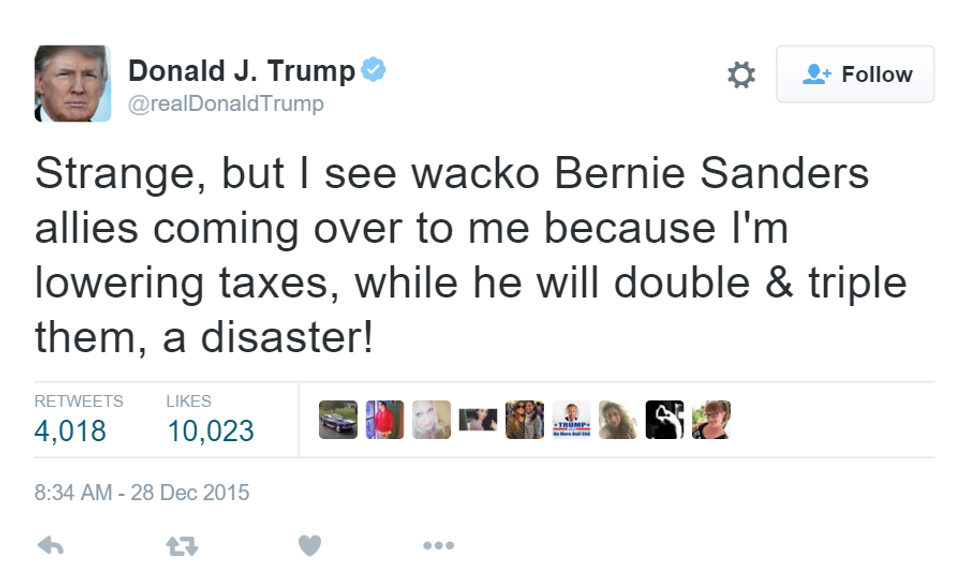
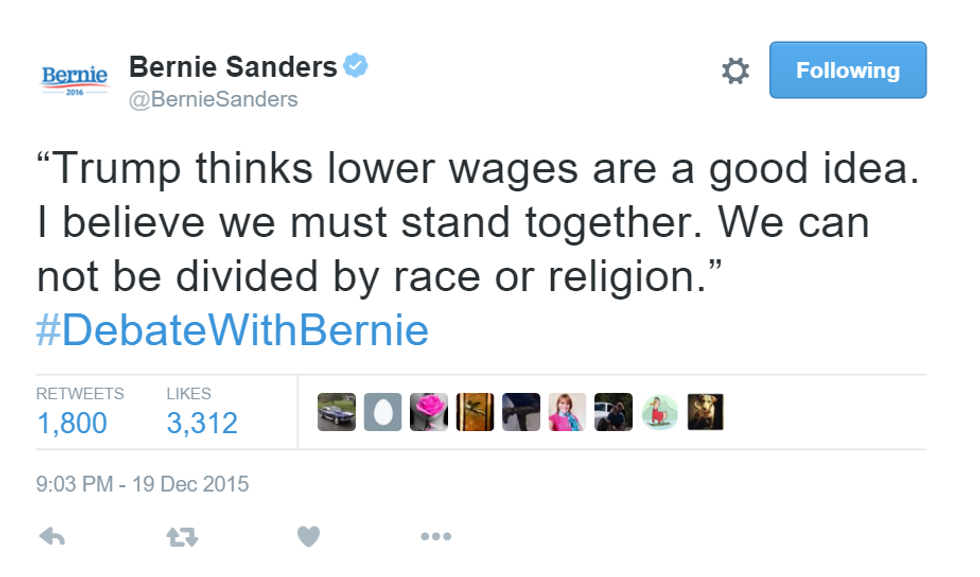
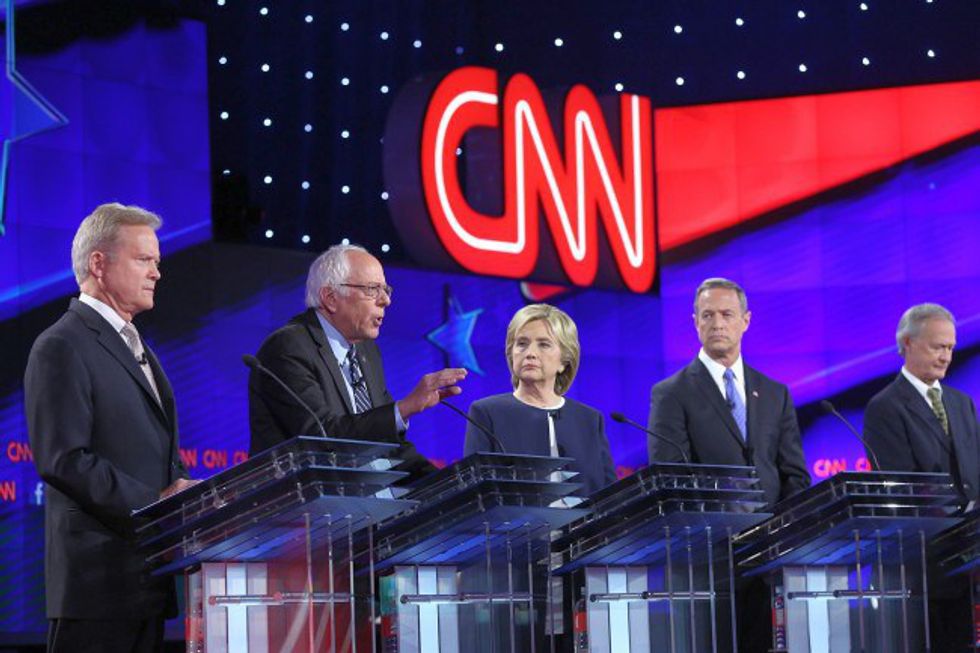
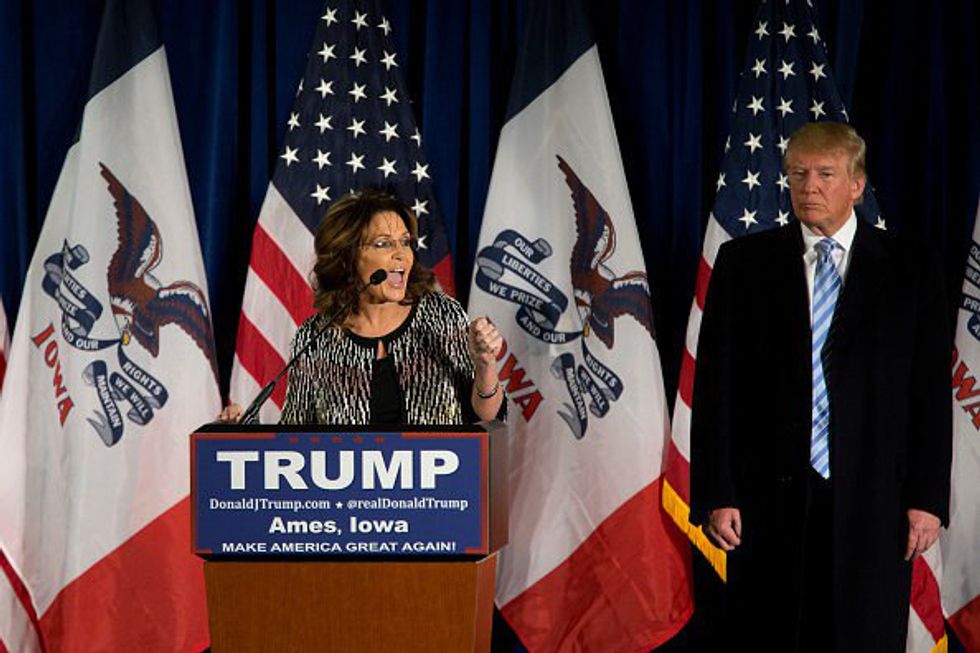
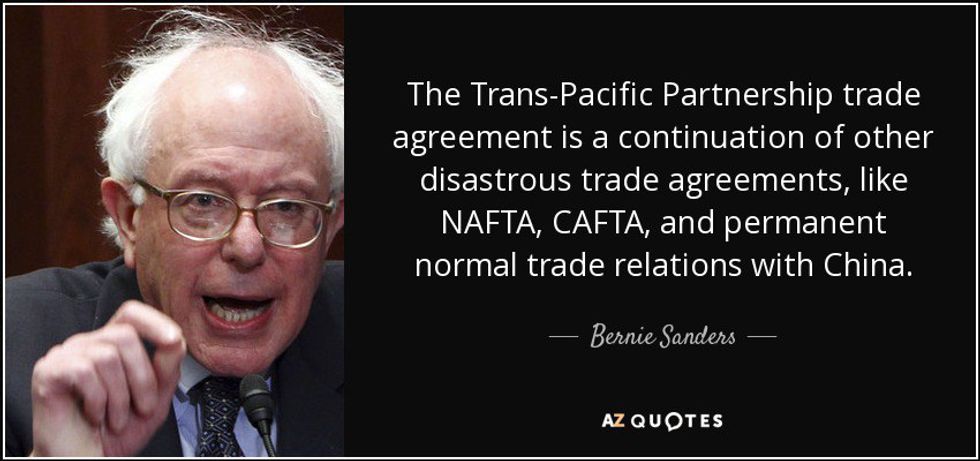
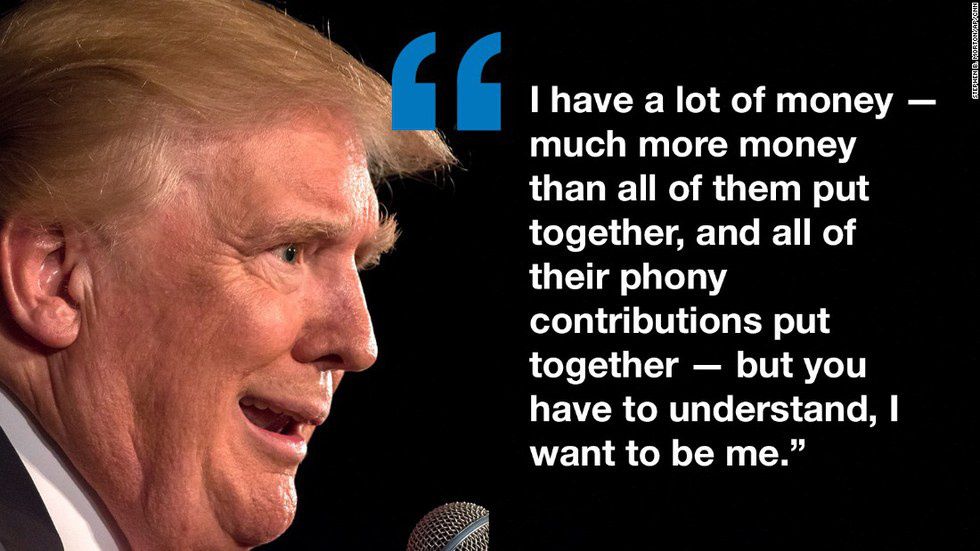


 StableDiffusion
StableDiffusion StableDiffusion
StableDiffusion StableDiffusion
StableDiffusion Photo by
Photo by  Photo by
Photo by  Photo by
Photo by 
 Photo by
Photo by  Photo by
Photo by  Photo by
Photo by  Photo by
Photo by  Photo by
Photo by 











